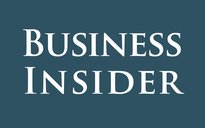
Written by Tessa Campbell; edited by Laura Grace Tarpley
Sept. 22, 2023
In December 2022, Congress passed the SECURE 2.0 Act, which focused on improving retirement outcomes for current and future retirees in the US. Around 100 changes were made to the original SECURE Act, including updated policies and rules for 401(k)s catch-up contributions.
Starting in 2026, retirees may lose some of the tax advantages involved with traditional 401(k) plans. The goal of this change is to enhance retirement outcomes for workers, but millions of Americans may end up paying more in taxes as a result.
Here's everything you need to about the up-and-coming changes for 401(k) catch-up contributions.

iStock-1368547086
401(k) catch-up contributions in 2026: 4 things you should know now
1. You'll lose the benefit of an initial tax break
Traditional 401(k) plans are funded by pre-tax dollars, whereas Roth 401(k)s are funded by after-tax dollars. Higher earners who are age 50 or older have long reaped the rewards of the initial tax break offered through traditional 401(k) contributions. This is especially beneficial for folks who retire in a lower tax bracket as they'll be taxed less compared to when they were actively working.
But starting in 2026, older workers earning over $145,000 annually will no longer be able to deposit catch-up contributions into a traditional 401(k) plan. The SECURE 2.0 Act is taking away this perk. Instead, those catch-up contributions will have to be placed in a Roth 401(k), thus altering the fundamental tax advantages of those funds.
In 2023, both traditional 401(k)s and Roth 401(k)s have a maximum contribution of $22,500 for people under 50. Those age 50 or older can contribute an additional "catch-up contribution" of $7,500 to their account. That maxes out the total contribution limit for 401(k) contributions at $30,000.
2. Your tax savings and take-home pay will be reduced
The "Rothification" of catch-up contributions means that older, high-earning workers will receive reduced tax savings and modified take-home pay. Rather than collecting the immediate tax benefit of a traditional 401(k) contribution, catch-up contributions will be taxed as Roth contributions.
Traditional 401(k) plans are generally best for employees who assume they'll fall into a lower-income tax bracket during retirement. Roths are typically better for younger workers in a low tax bracket who expect to be in a higher bracket during retirement.
Why? Because with a Roth contribution, you'll only pay taxes on the amount deposited into the account and your contributions grow tax-free. If you expect to be in a higher tax bracket when you retire, this is ideal. But if you are expecting to be in a lower tax bracket come retirement age, and you were relying on the benefit of pre-tax contributions, you're now losing the upper hand.
Eric Kirste, CFP and wealth manager at Savvy Wealth, explains that such a radical change in the retirement savings industry isn't unheard of per se, but that the SECURE 2.0 Act is one of the biggest bodies of law he's witnessed come to fruition in such a short period of time. He has concerns over whether Americans will be prepared to implement these changes.
Workers who don't fully understand the policies involved with retirement savings plans may be at a loss with the significant changes made by the SECURE 2.0 Act.
"I actually don't know if some of the individuals are going to be ready for this. I think there's going to be a lot more education that is going to be needed. The general public is aware of some of the changes," says Kirste. "But I think generally, the education around that is not necessarily prevalent."
But it's not all bad news.
3. You'll see significant savings down the line
While you may miss out on the immediate tax benefit of traditional 401(k) catch-up contributions, you'll still get the benefit of contributing to a Roth 401(k) plan. Your catch-up contributions, which are a max of up to $7,500 in 2023, will grow tax-free since after-tax earnings go into Roth plans.
So if your tax rate rises or you land in a higher tax bracket during retirement, you'll save a significant chunk of change in the long run.
It's also important to note that non-catch-up contributions can still be deposited into a traditional 401(k) plan. High earners can still receive the tax benefit of a traditional 401(k) on a majority of their contributions. Only catch-up contributions are affected by the new catch-up rules established in the SECURE 2.0 Act.
Also, workers making less than $145,000 per year will still be able to deposit catch-up contributions to their traditional 401(k) plan.
4. You have until 2026 to prepare
The new 401(k) catch-up rules were originally planned to be set into motion on January 1, 2024. But the IRS recently announced a two-year delay following a multitude of warnings from retirement program managers and employees who voiced concerns over implementing the switch in such a short time.
Employers who don't already offer Roth 401(k) plans will have to establish new systems and prepare accordingly to meet the demands of the SECURE 2.0 Act.
The IRS granted the delay request, much to the relief of 401(k) managers and employers. Many of the new rules around catch-up contributions are now set to go into motion starting in 2026. However, future delays or amended policies are likely to occur before the 2026 deadline.
"There are some errors written into the SECURE 2.0 Act that we've noticed when it was first passed," says Kirste. "As the IRS and some other bodies go through the review process, there might be more changes, and it could be up for review."
Quick tip: Another significant change enacted by the SECURE 2.0 Act is that the mandatory start date for retirees to begin withdrawing required minimum distributions (RMDs) will be pushed back to age 75 by 2033. The RMD age was bumped from age 72 to age 73 on January 1, 2023.
While this allows retirement savings to continue growing compound interest, many retirees won't be able to wait that long before needing to start withdrawing funds. The minimum age to start withdrawing without penalty is still 59 1/2.
How Americans can prepare for future 401(k) changes
The 2026 delay not only gives firms and financial advisors more time to lay the necessary groundwork, but it also gives individuals more time to prepare. Thorough education is key to understanding the new and updated policies of the SECURE 2.0 Act. As previously mentioned, there are roughly 100 changes set to be implemented. And while not all of them are significant, some updated policies will drastically affect what, where, and how you contribute to retirement savings.
"There will be a need for more education around this issue. I can imagine individuals making mistakes unless these plans come forth with better education," says Kirste.
American workers can prepare for these upcoming changes by meeting with financial experts on their individual financial and retirement savings situation. Kirste emphasizes the importance of discussing individual financial information with a professional with expertise in that area.
"Seeking out a professional who is fee-based is important because you're getting unbiased advice," explains Kirste. "There may be only two or three items [from the SECURE 2.0 Act] that may apply to most individuals. It's hard to tell until you start digging in and looking at the individual's circumstances."
For example, You may want to consider opening a traditional IRA account alongside your existing 401(k) to gain the same pre-tax advantage. But not everyone is eligible to do so.
Plus, contributing to an IRA on top of your 401(k) may prevent you from maxing out your employer match in your 401(k) or reducing other employer-sponsored perks. (Every company's rules are different.) Some individuals may want to consider opening a regular brokerage account for increased liquidity and more account flexibility. At the end of the day, retirement savings advice widely varies from individual to individual.
If you're not sure what you're next move should be, consider setting up a meeting with a financial planner. Financial planners and advisors can provide you with expert advice and guidance about long-term savings and retirement planning based on your individual goals and time horizon.
Subscribe to Business Insider's Financial Insights Newsletter
This Business Insider article was legally licensed by AdvisorStream





